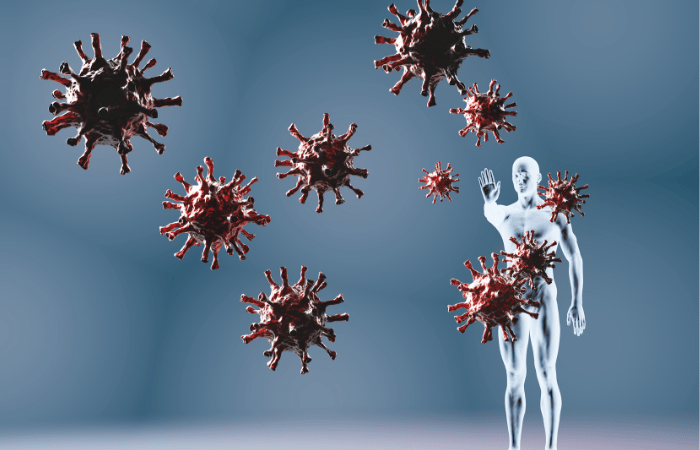A Study of CD19/BCMA CAR-T Cells Therapy for Patients With Refractory Sjogren’s Syndrome
Detailed Description:
Autoimmune diseases only show local pathological damage, but more often systemic lesions. If not diagnosed and treated in time or poorly controlled, there is a risk of disability or even death as the course of the disease progresses. Studies have shown that B cells can present their own antigens to autoimmune T cells to promote the release of inflammatory factors, or they can differentiate into plasma cells to release autoantibodies, and play an important role in the occurrence and progression of autoimmune diseases. In recent years, it has become a major research focus to deplete B cells in patients or inhibit B cell function. This research focuses on CAR-T cells killing B cells. Sjögren’s syndrome (SS) is a systemic autoimmune disease characterized by chronic inflammation of salivary and lachrymal glands, frequently accompanied by systemic symptoms. The presence of various autoantibodies, such as rheumatoid factor (RF) and anti-SSA/SSB antibodies, as well as hypergammaglobulinemia, reflect B cell hyperactivity. About five percent of patients with SS develop malignant B cell lymphoma, usually of the mucosa-associated lymphoid tissue (MALT) type and most frequently located in the major salivary glands. This fully reflects the application prospects of CAR-T cells in autoimmune diseases.
Based on the progress made so far, our center plans to study the safety and effectiveness of CD19/BCMA CAR-T cells in treating systemic lupus erythematosus that has not responded to other treatments.
Study Design
Study Type : Interventional (Clinical Trial)
Estimated Enrollment : 9 participants
Allocation: N/A
Intervention Model: Single Group Assignment
Masking: None (Open Label)
Primary Purpose: Treatment
Official Title: A Study of CD19/BCMA Chimeric Antigen Receptor T Cells Therapy for Patients With Refractory Sjogren’s Syndrome
Estimated Study Start Date : November 5, 2021
Estimated Primary Completion Date : November 5, 2024
Estimated Study Completion Date : November 5, 2024
Inclusion Criteria:
- 1. Sjogren’s Syndrome with positive CD19/BCMA expression , and the conventional treatment is not effective and (or) no effective treatment 2. Estimated survival time> 12 weeks; 3. Patients had a negative urine pregnancy test before the start of administration and agreed to take effective contraceptive measures during the test period until the last follow-up; 4. Patients or their legal guardians volunteer to participate in the study and sign the informed consent.
Exclusion Criteria:
- Subjects with any of the following exclusion criteria were not eligible for this trial:
- History of craniocerebral trauma, conscious disturbance, epilepsy, cerebrovascular ischemia, and cerebrovascular, hemorrhagic diseases;
- Electrocardiogram shows prolonged QT interval, severe heart diseases such as severe arrhythmia in the past;
- Pregnant (or lactating) women;
- Patients with severe active infections (excluding simple urinary tract infection and bacterial pharyngitis);
- Active infection of hepatitis B virus or hepatitis C virus;
- Concurrent therapy with systemic steroids within 2 weeks prior to screening, except for the patients recently or currently receiving in haled steroids;
- Creatinine > 2.5 mg/dl, or ALT / AST > 3 times of normal amounts, or bilirubin > 2.0 mg/dl;
- Other uncontrolled diseases that were not suitable for this trial;
- Patients with HIV infection;
- Any situations that the investigator believes may increase the risk of patients or interfere with the results of study
- Platelets ≥30×10E9/L, and absolute lymphocyte count ≥1.0×10E9/L
- Methylprednisolone (maximum dose 1 mg/kg) or prednisone (maximum dose 1.25 mg/kg) instead of immunosuppressive agents to control the disease.
Susan Hau is a distinguished researcher in the field of cancer cell therapy, with a particular focus on T cell-based approaches and cancer vaccines. Her work spans several innovative treatment modalities, including CAR T-cell therapy, TIL (Tumor-Infiltrating Lymphocyte) therapy, and NK (Natural Killer) cell therapy.
Hau's expertise lies in cancer cell biology, where she has made significant contributions to understanding the complex interactions between immune cells and tumors.
Her research aims to enhance the efficacy of immunotherapies by manipulating the tumor microenvironment and exploring novel ways to activate and direct immune responses against cancer cells.
Throughout her career, Hau has collaborated with leading professors and researchers in the field of cancer treatment, both in the United States and China.
These international experiences have broadened her perspective and contributed to her innovative approach to cancer therapy development.
Hau's work is particularly focused on addressing the challenges of treating advanced and metastatic cancers. She has been involved in clinical trials evaluating the safety and efficacy of various immunotherapy approaches, including the promising Gamma Delta T cell therapy.
- Comments Closed
- March 17th, 2023






Autoimmune Disease Immunotherapy, B-cell depletion therapy, CAR-T Clinical Trials for Sjögren’s Syndrome, CD19 BCMA CAR-T Therapy, chimeric antigen receptor T cell therapy, Experimental Therapies for Sjögren’s Syndrome, Innovative Autoimmune Treatments 2024, Refractory Sjögren’s Syndrome Treatment
CancerFax is the most trusted online platform dedicated to connecting individuals facing advanced-stage cancer with groundbreaking cell therapies.
Send your medical reports and get a free analysis.
🌟 Join us in the fight against cancer! 🌟
Привет,
CancerFax — это самая надежная онлайн-платформа, призванная предоставить людям, столкнувшимся с раком на поздних стадиях, доступ к революционным клеточным методам лечения.
Отправьте свои медицинские заключения и получите бесплатный анализ.
🌟 Присоединяйтесь к нам в борьбе с раком! 🌟